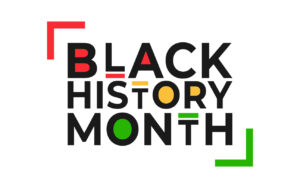Here at GCP we celebrate Black History every month. But as we head into the first weekend of the “official” Black History Month (which was established in 1967 by President Gerald Ford), today we offer ways for your family to stay especially focused on Black History this month.
As we know, school Black History Month tributes can be somewhat limited. Sure, they’ll cover the legacies of Dr. Martin Luther King, Rosa Parks, and a few other Black civil rights leaders, entertainers and athletes. While our kids certainly should learn about these impactful Black American leaders, (and not just in February), there are so many opportunities to make a month-long celebration of Black History more representative, thorough, and meaningful.
1. One great way to do this is to focus on your family’s history during Black History Month: Share your stories about your parents and grandparents and what life was like for them. Pull out old photo albums and walk your children through your family tree. Bring your own Black History to life for your children! You can have these discussions around dinner, on the road, instead of reading a book to them at bedtime–whenever you’ve got some time and their attention. Tell them stories from your childhood; let them know what life was like for you growing up. As you tell the stories, try to give as many details as possible. Talk about the political landscape of your childhood: who was President, who were the state and local officials, what important political events do you remember as a child? Who were some of the Black leaders (local or national) in those days? Your children are sure to ask questions, and their questions will prompt even more stories.
If you have more time, get your relatives involved! Ask them to gather their thoughts so that they can be ready to share their own recollections. Encourage your kids to ask them to describe different aspects of their lives: their schooling, their jobs, what they did for fun, the modes of transportation they used, the ways in which they communicated, their favorite foods, music, sports teams. As you hear these details, you can help your children put them into the context of Black American life at that time.
If you’ve got the time and the energy, write these stories down or document them on video so that they can be shared and passed down to generations to come. Stories like these make history come alive for our children, and remind them of the power of our culture, community, and ancestry.
2. Take a DNA test to find out more about your family’s history: There are many companies that offer DNA testing, including ancestry.com and 23andme.com. Once you’ve submitted the test you’ll receive information about the parts of the world from which your ancestors have come. It will be fun and interesting to share the results with your family!
3. Focus on books by and about Black Americans. This month, make sure that your children are reading books about the inspirational Black men and women who helped make America great. Need help finding new titles? Here’s a list of “45 Books to Teach Children about Black History“. And check out these lists of books to read for Black History month compiled by librarians.
4. Take a Class in Black History: Reconstruction.us offers a broad selection of live, online courses which engage students from age 5 up to adults in educational subjects that center on Black contributions to the U.S. and the world. Classes begin soon. Check out the course catalog here.
5. Discover Hidden Figures of Black History: When you are at home together, discover and share some lesser known nuggets of Black History. If your children are old enough to do their own research, challenge them to come up with a few on their own. Here’s one: Did you know that the first Black woman to be arrested for refusing to give up her seat on a public bus was not Rosa Parks, but Claudette Colvin, and she was only 15 years old when this happened? There are several sites online that feature lesser known Black History facts, including those at history.com.
5. Go On a Content Treasure Hunt On Line: Many sites for and about children are featuring special Black History content this month. You can start by checking out what to watch this month on PBS.org, find articles and videos on biography.com, check out a Black history timeline on theroot.com, and find more resources on National Geographic Kids and Common Sense Media.
Have fun sharing and celebrating Black History with your family, this month and every month!!






